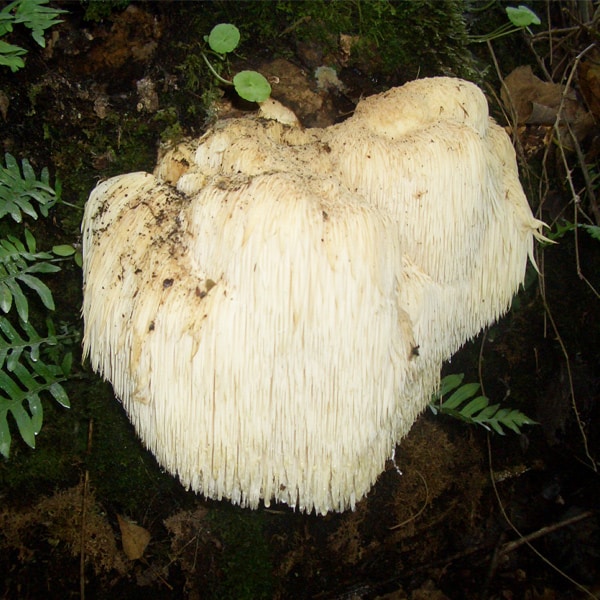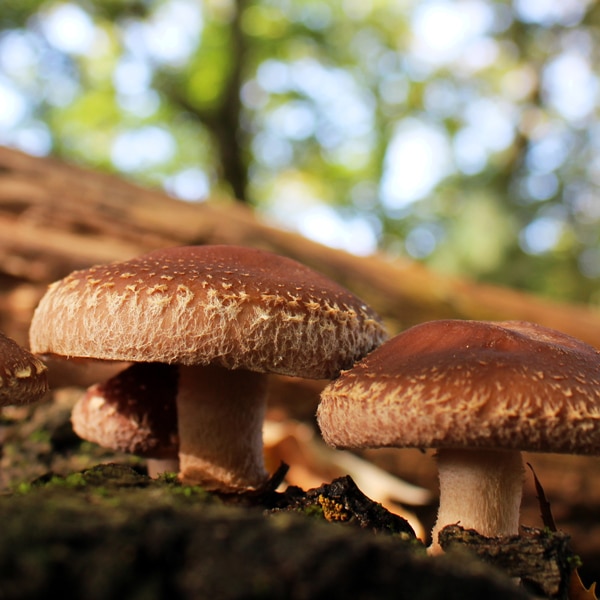Constipation
What is constipation?
Chronic constipation is infrequent bowel movements or difficulty in bowel movements that persists for several weeks or longer. It is usually described as having less than three bowel movements per week.
Although occasional constipation is very common, some people have chronic constipation that can have a profound impact on daily life. Chronic constipation can also cause other signs and symptoms.
The treatment for chronic constipation will depend on the underlying cause and in some cases, this can be difficult to find.
Expert Advice
Our professional mycotherapy specialist advisors can provide tailored advice and mycotherapy protocols using Hifas da Terra organic mushroom products.
Which mushrooms have useful properties for constipation?
Lion’s Mane, Shiitake and Pleurotus are significantly useful in supporting the health of the bowel, balancing gut microbiota (helpful bacteria in gut) and reducing stress to help with constipation.

Lion’s Mane
Lion’s Mane supports regeneration of the lining of both the small and large intestine which can improve gastrointestinal function.

Shiitake
Shiitake is a beneficial mushroom that also supports intestinal flora, the helpful bacteria in the gut. It has a high content of naturally occurring sugars ideal to support bacteria strains (Bifidobacterium breve and Lactobacillus brevis) important in maintaining a healthy gut and regular bowel movements.
Discover the Exclusive Practitioner Area
Free Access to Mycotherapy Resources and Online Support for Health Professionals
Nutritional recommendations and general healthy habits for the maintenance of a good state of health
- Practice at least 60 minutes of exercise per day. Take advantage of any moment to take a walk, make the purchase or climb the stairs.
- Follow a diet as varied as possible: includes fresh fruits and vegetables, organic and seasonal, preferably.
- Moderates the consumption of red meat and meat products. Increase in vegetables, legumes, fish and mushrooms.
- It refuses, as far as possible, the consumption of processed foods such as sauces, sausages and pasta.
- Avoid refined, processed and packaged flours (pasta, white bread, sliced bread, toast, cookies …)
- Prioritizes the use of whole grain, quality and unprocessed flours.
- Eat foods rich in unsaturated healthy fats that improve brain function such as nuts, blue fish, flax seeds or olive oil.
- Drink 1.5 to 2 liters of water a day.
- Eliminate tobacco If you can not, minimize your consumption.
- Try to moderate the consumption of alcohol to the beer and wine, not more than one glass / glass a day.
- Make a reasoned use of salt. Try to reduce the intake of products with high content in this mineral.
- It reduces the consumption of caffeine as well as that of exciting and carbonated drinks. Substitute them, for example, for green tea that contains less caffeine and more antioxidants.
- Try to reduce the consumption of sugars, sweets and industrial pastries.
- Eliminates or reduces the consumption of products with preservatives (especially from group E).
- Perform relaxation exercises, deep breaths, relaxing activities such as yoga and practice meditation.
- Try to have a set schedule to sleep, respecting your sleep hours and perform some relaxing exercise if you have trouble falling asleep. This will help you not get up with fatigue and irritability and decrease the levels of stress and anxiety hormones.
- Adopt a positive and optimistic attitude towards life. Enjoy natural foods and the simple things that surround you.
- Giavasis I. Bioactive fungal polysaccharides as potential functional ingredients in food and nutraceuticals. Curr Opin Biotechnol. 2014 Apr;26:162-73. doi: 10.1016/j.copbio.2014.01.010.
- Chou WT, Sheih IC, Fang TJ. The applications of polysaccharides from various mushroom wastes as prebiotics in different systems. J Food Sci. 2013 Jul;78(7):M1041-8. doi: 10.1111/1750-3841.12160.
- Xu X, Zhang X. Lentinula edodes-derived polysaccharide alters the spatial structure of gut microbiota in mice. PLoS One. 2015 Jan 21;10(1):e0115037. doi: 10.1371/journal.pone.0115037. eCollection 2015.
- Takeda T, Nakano Y, Takahashi M, Sakamoto Y, Konno N. Polysaccharide-inducible endoglucanases from Lentinula edodes exhibit a preferential hydrolysis of 1,3-1,4-β-glucan and xyloglucan. J Agric Food Chem. 2013 Aug 7;61(31):7591-8. doi: 10.1021/jf401543m.
- Chou WT, Sheih IC, Fang TJ. The applications of polysaccharides from various mushroom wastes as prebiotics in different systems. J Food Sci. 2013 Jul;78(7):M1041-8. doi: 10.1111/1750-3841.12160.
- Konno N, Sakamoto Y. An endo-β-1,6-glucanase involved in Lentinula edodes fruiting body autolysis. Appl Microbiol Biotechnol. 2011 Sep;91(5):1365-73. doi: 10.1007/s00253-011-3295-2.